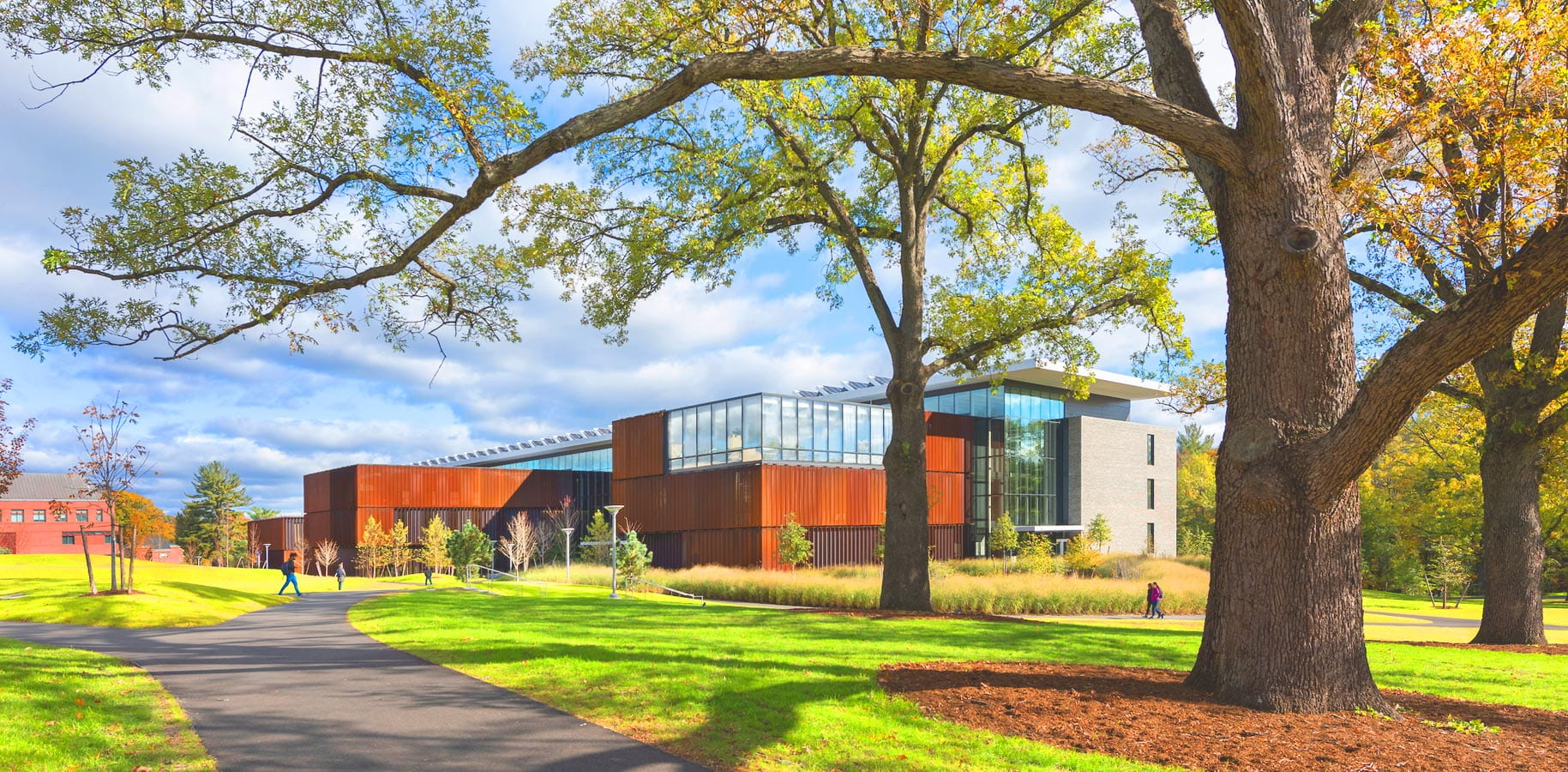On March 9th, Professor Palmquist led the latest conversation of the Psychology Department Spring 2021 Lecture Series. She spoke with Anna Vuong ’18 and Sydney “Kramer” Peterson ’17 about how they went from psychology majors at Amherst to their current jobs as teachers.
Anna was a psychology major who was involved in Ed Pros, QuestBridge, and residential counseling. She got her Master’s of Science in Education at Johns Hopkins University, specializing in secondary mathematics and special education. She is currently in her second year of being an 8th grade math teacher at Baltimore Public Schools and, although she describes herself as a type-A personality, she has discovered that being a teacher forces her to adapt to unforeseen developments and think on her feet.
On the other hand, Kramer was a biology and psychology double major involved in Project Salud, the lacrosse team, and rowing crew. He was interested in the business side of healthcare, so after graduating Amherst he worked on the communications and operations aspect of pediatric urgent care. After this job, he tried coaching and tutoring before realizing that teaching was the way he wanted to go. He is now a teacher at a boarding school in Connecticut which focuses on students with language-based learning differences such as ADHD and dyslexia.
Professor Palmquist asked them to share a peek into a typical day in their lives, and after both laughed that there is no such thing as a typical day when you’re a teacher, they each gave us a look into their (pre-COVID) schedules.
Anna comes to work an hour early and interacts with her colleagues, thrilled at being part of a collaborative team environment. Her classes are on the larger side, with 26-30 students. She teaches four classes a day, with two periods for planning. Her lunch break usually isn’t too quiet, as she is joined by the “lunch bunch” who want to escape from the chatter of the cafeteria. Anna ends her day with “coach classes,” which are an optional period of extra help for students, and she enjoys seeing their enthusiasm to do better in her classes. Anna also has individualized education plan (IEP) meetings once a week, which focus on special education. She credits her time at Johns Hopkins as a valuable exposure to the vocabulary surrounding these learning disorders and for helping her to better communicate with parents about their child’s needs and progress.
Kramer’s typical day is quite different. As a boarding-school teacher, he wakes up in a dorm, but one that he assures us is “much better” than college dorms. His first meeting of the day is advisory, in which he is a co-advisor to a group of six seniors. Kramer teaches two classes a day as a teaching fellow, and when he becomes a full teacher, he will teach three. Unlike the large classes that Anna has, Kramer’s classes are dramatically smaller, with some only having 3 or 4 students. His first class is sports psychology, which he teaches using the textbook written by Amherst’s very own Professor Sanderson. He has lunch with his peers, then a block of prep. His last class of the day is called Memory, another echo from his Amherst past, this one inspired by Professor Schulkind. When classes are done, he (in a non-COVID year) would coach the ski team. After he has dinner, there is Y Block, where students can seek out extra help sessions. Finally there is study hall, in which he walks around his assigned dorm of 10 students and checks in.
Professor Palmquist then asked them to describe the greatest rewards and challenges of the job. Anna finds the team of like-minded colleagues to be extremely helpful, and she loves teaching students to “have ownership of their learning.” This “gradual release of responsibility,” as she described it, was a difficult thing to learn, but it has made her a more comfortable and confident teacher. Kramer considers the most rewarding aspect of teaching to be the “tangible impact that you can have” on students. He does acknowledge that one challenge is adjusting expectations for his students from the highly competitive atmosphere of a college like Amherst.
As for general advice to those interested in becoming educators, our two alums have some words of wisdom. Anna says to talk to people in your field of interest, and to “step into opportunities” in that community. Kramer advises that, for private schools in particular, it is best to be passionate about extracurricular activities, as you will inevitably be tasked with leading an after-school club of some kind.
No matter what stage of life you’re at, or where you see it going, it is always important to take a moment to, as Anna says, “remember my why.” Remind yourself why you are doing this, how the pros compare to the cons, and how you are making a positive impact on those around you.
